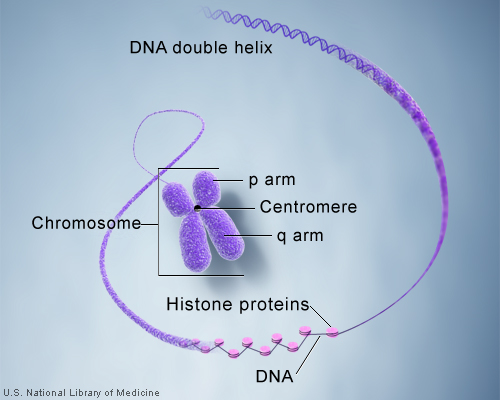
FAYETTEVILLE, Ark. — A University of Arkansas researcher is studying the architecture of cell division — a fundamental process about which little is known, but when something goes wrong, it can cause cell death. Her work in searching for cellular factors that counteract destructive mutations in this process has earned her National Science Foundation funding through 2010.
Inés Pinto, associate professor of biological sciences, studies chromatin, the structure composed of DNA and proteins, which is essential to cell division, where the chromosomes from an organism replicate themselves, then separate into daughter cells. This form of division is common to organisms from yeast cells to human beings.
“Every time a cell divides, it has to replicate all of its genetic information,” Pinto said. “The cell has come up with this process that we all take for granted. Yet it is really a fascinating and poorly understood process.”
Pinto studies the role of chromatin in chromosome segregation in Saccharomyces cerevisiae, commonly known as baker’s yeast, because yeast divides quickly, is easy to grow, amenable to molecular and genetic manipulations, and has a sequenced genome. This organism serves as a blueprint for understanding how human cells divide.
“We know that the process is conserved. There are also important differences,” Pinto said.
Pinto focuses on proteins within the chromatin, called histones, which remain almost identical in yeast and in humans, indicating conservation over time. A complex composed of histones forms a core for the DNA to wrap around, allowing it to begin the process of compaction that results in a chromosome.
Pinto and her colleagues have shown that a single change of one amino acid in one of the proteins in the histone complex can cause defects in the architecture of the central core, which then causes a mis-attachment of the chromosomes to the spindle fibers that pull chromosomes apart during cell division. They have created another mutation in an enzyme complex that compensates for the first mutation.
“In doing so, we can learn what is interacting with what,” Pinto said. “We give the cell the chance to tell us the answer to the problem.”
Her current NSF-funded work will focus on modifications to the histones. During the cell division process, these proteins become modified by adding or releasing specific chemical groups that act as signals on the surface of the chromosome. These modifications can create distinct regions within chromosomes that allow cellular factors to distinguish one area from the surrounding genetic material, and can serve different functions.
“We don’t know yet what particular signals mean,” Pinto said. The researcher and her colleagues will manipulate the areas of modification to see what particular histone modifications are necessary for successful cell division.
“It’s like a puzzle where you only have a few pieces,” Pinto said. “There’s not a clear cut signal and consequence. We will learn new insights into the cellular mechanisms that govern the basic process of chromosome transmission from mother to daughter cell.”
Pinto is a professor in the J. William Fulbright College of Arts and Sciences.
Contacts
,